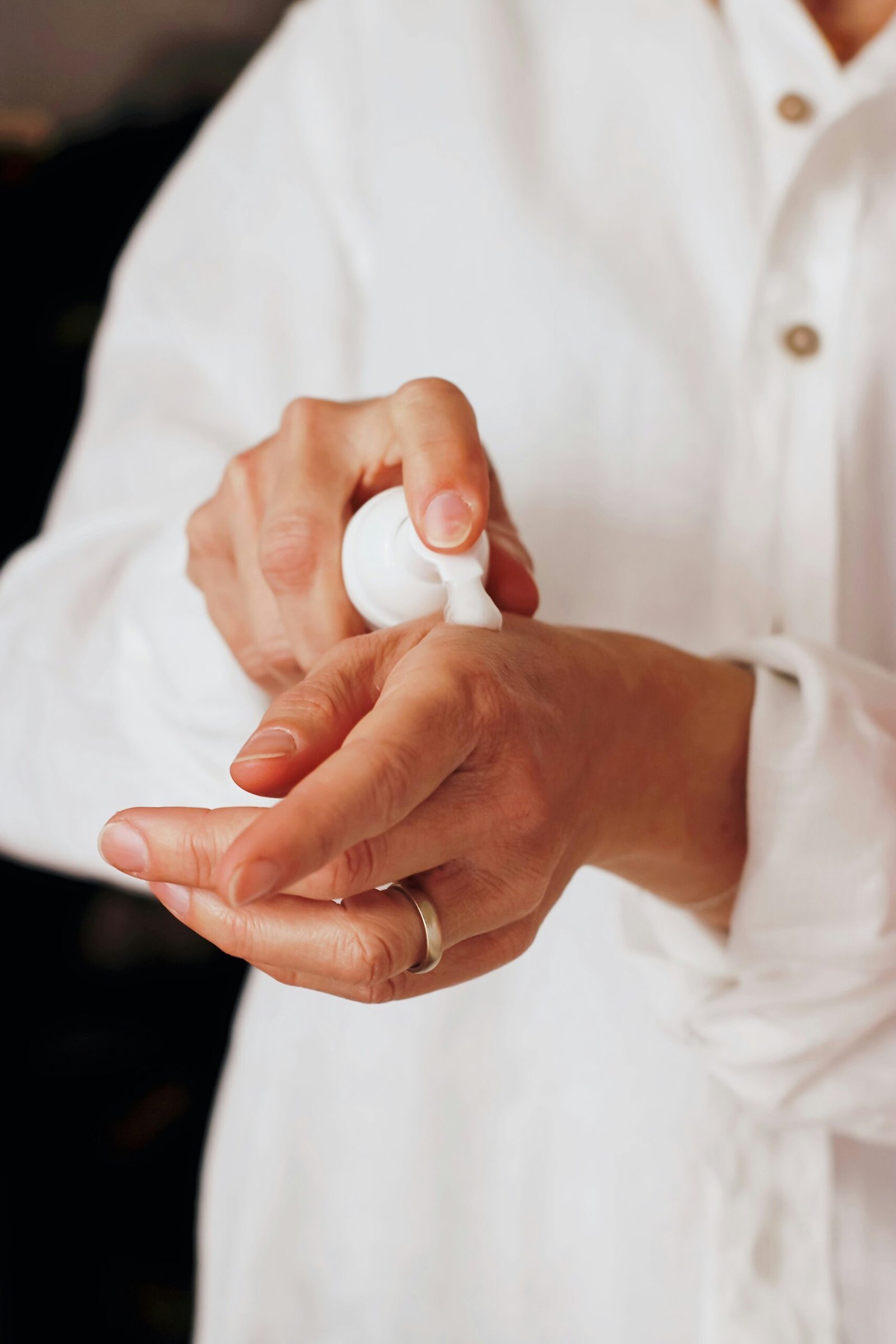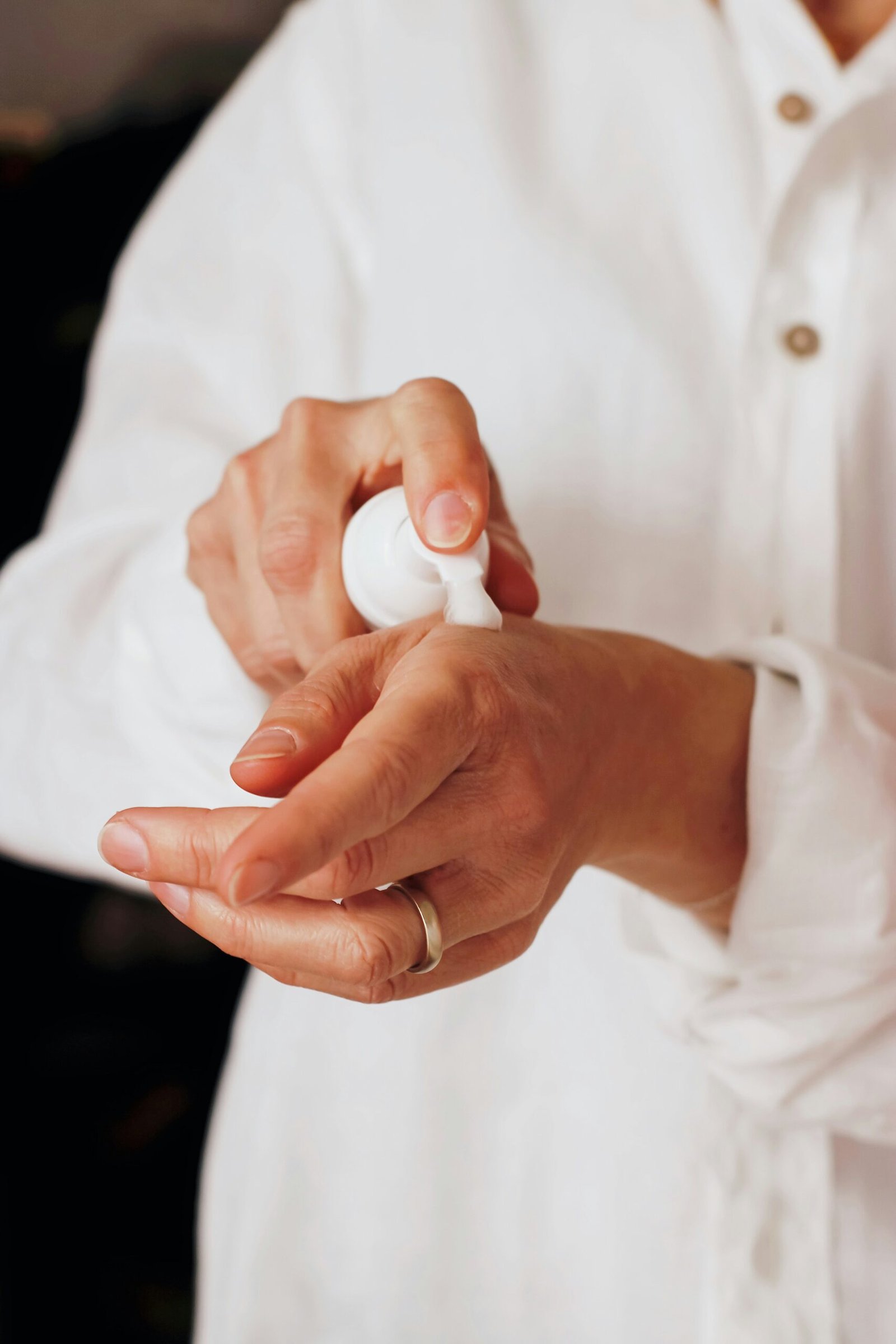
Introduction to Face Serums
Face serums have become a cornerstone in modern skincare routines, distinguished by their potent formulations and targeted benefits. Unlike moisturizers or oils, face serums are typically lightweight, fast-absorbing liquids designed to deliver high concentrations of active ingredients directly to the skin. Their unique composition allows them to penetrate deeper into the skin layers, making them particularly effective for addressing specific concerns such as hydration, pigmentation, and signs of aging.
The journey of face serums in the beauty industry is a fascinating one. Historically, skincare was primarily focused on basic cleansing and moisturizing. However, as scientific advancements unfolded, the understanding of skin physiology and the role of active ingredients evolved. This led to the development of specialized treatments, including face serums, which began to gain popularity in the late 20th century. Initially marketed as luxury products, serums have now become accessible to a broader audience, thanks to advancements in formulation technologies and increased consumer awareness.
Face serums stand out due to their high concentration of active ingredients, such as hyaluronic acid, vitamin C, and retinol. These ingredients are meticulously chosen for their efficacy in targeting specific skin issues. For instance, hyaluronic acid is renowned for its hydrating properties, vitamin C is celebrated for its brightening effects, and retinol is widely recognized for its anti-aging benefits. The ability to combine these powerful ingredients in a single, easily absorbed product is what sets face serums apart from traditional skincare solutions.
As the beauty industry continues to innovate, face serums have evolved to cater to diverse skin types and concerns. Today, there is a serum for nearly every skin need, from soothing inflammation to boosting collagen production. This versatility, combined with their targeted nature, makes face serums an indispensable part of any comprehensive skincare regimen.
Key Ingredients in Face Serums
Face serums are lauded for their potent formulations, often containing a high concentration of active ingredients designed to target specific skin concerns. Among the most common and effective ingredients found in these serums are hyaluronic acid, vitamin C, retinol, peptides, and antioxidants. Each of these ingredients offers unique benefits, contributing to overall skin health and vitality.
Hyaluronic Acid: Known for its remarkable ability to retain moisture, hyaluronic acid is a staple in hydrating serums. It can hold up to 1,000 times its weight in water, making it an essential ingredient for plumping the skin and reducing the appearance of fine lines and wrinkles. Hyaluronic acid’s hydrating properties help to maintain the skin’s elasticity and suppleness.
Vitamin C: This potent antioxidant is revered for its skin-brightening and anti-aging benefits. Vitamin C helps to neutralize free radicals, reducing oxidative stress and preventing premature aging. Additionally, it promotes collagen production, which is crucial for maintaining skin’s firmness and elasticity. Regular use of a vitamin C serum can result in a more radiant and even-toned complexion.
Retinol: A derivative of vitamin A, retinol is a powerhouse ingredient in anti-aging serums. It accelerates cell turnover, which helps to diminish the appearance of fine lines, wrinkles, and hyperpigmentation. Retinol also unclogs pores, making it beneficial for those with acne-prone skin. Consistent use of retinol serums can lead to a smoother, more youthful-looking skin.
Peptides: These short chains of amino acids are the building blocks of proteins like collagen and elastin, which are essential for skin structure and resilience. Peptides in face serums can stimulate collagen production, strengthen the skin barrier, and improve overall skin texture. Incorporating peptide serums into a skincare routine can result in firmer and more resilient skin.
Antioxidants: Besides vitamin C, other antioxidants such as vitamin E, ferulic acid, and green tea extract also play a vital role in protecting the skin from environmental damage. These ingredients help to neutralize free radicals, reduce inflammation, and promote healing. Antioxidant-rich serums can provide a protective shield against pollutants and UV radiation, keeping the skin healthy and youthful.
Understanding these key ingredients and their benefits can help individuals make informed decisions when selecting a face serum that best suits their skin needs. Each component works synergistically to enhance skin health, making face serums a valuable addition to any skincare regimen.
Types of Face Serums and Their Benefits
Face serums have revolutionized skincare routines, offering targeted solutions for various skin concerns. Understanding the different types of face serums and their benefits can help you choose the right product for your skin’s needs. Here, we’ll explore the primary types of face serums: hydrating serums, anti-aging serums, brightening serums, and acne-fighting serums.
Hydrating Serums: Hydrating serums are formulated to replenish moisture and maintain skin hydration. They often contain ingredients like hyaluronic acid, glycerin, and aloe vera, which are known for their ability to attract and retain water. These serums are particularly beneficial for dry or dehydrated skin, providing an instant boost of hydration and promoting a plumper, more youthful appearance.
Anti-Aging Serums: Anti-aging serums are designed to combat the signs of aging, such as fine lines, wrinkles, and loss of elasticity. Key ingredients in these serums include retinol, peptides, and antioxidants like vitamin C and E. Retinol boosts collagen production and cell turnover, while peptides support skin structure and antioxidants protect against environmental damage. Regular use of anti-aging serums can result in smoother, firmer, and more radiant skin.
Brightening Serums: Brightening serums focus on improving skin tone and reducing the appearance of dark spots, hyperpigmentation, and dullness. Ingredients such as vitamin C, niacinamide, and alpha arbutin are commonly found in these serums. Vitamin C is a powerful antioxidant that helps to lighten dark spots and even out skin tone, while niacinamide and alpha arbutin inhibit melanin production, leading to a brighter complexion over time.
Acne-Fighting Serums: Acne-fighting serums target breakouts and blemishes with ingredients like salicylic acid, benzoyl peroxide, and tea tree oil. Salicylic acid is a beta hydroxy acid (BHA) that exfoliates the skin and unclogs pores, while benzoyl peroxide kills acne-causing bacteria. Tea tree oil provides a natural anti-inflammatory and antimicrobial effect. These serums help to clear existing acne and prevent future breakouts, promoting clearer, healthier skin.
Choosing the right face serum for your skin type and concerns can significantly enhance your skincare routine. By understanding the specific benefits each type of serum offers, you can address your skin’s unique needs effectively and achieve desired results.
How to Choose the Right Face Serum for Your Skin Type
Selecting the right face serum can be a transformative step in your skincare routine. However, with the myriad of options available, it can be overwhelming to find one that suits your specific skin type. Understanding your skin’s unique needs is crucial in making an informed decision.
For oily skin, look for serums containing salicylic acid, niacinamide, or tea tree oil. These ingredients help in controlling excess sebum production and reducing the appearance of pores. Lightweight, non-comedogenic formulas are preferable to avoid clogging pores.
Individuals with dry skin should opt for serums rich in hydrating ingredients like hyaluronic acid, glycerin, and ceramides. These components provide deep moisture and strengthen the skin barrier, which is essential for preventing water loss and maintaining skin elasticity.
Combination skin requires a balanced approach. Serums incorporating ingredients such as vitamin C can address multiple concerns simultaneously. These serums can hydrate dry areas while controlling oil production in the T-zone. Additionally, look for formulations that are neither too heavy nor too light.
Sensitive skin types should prioritize serums with soothing and anti-inflammatory ingredients like aloe vera, chamomile, and calendula. Avoid products with alcohol, synthetic fragrances, and harsh chemicals that can irritate the skin. Patch testing any new product is advisable to ensure it does not cause adverse reactions.
For those with normal skin, the options are more flexible. You can choose serums based on specific skin goals, such as anti-aging, brightening, or hydration. Ingredients like peptides, antioxidants, and retinoids can be beneficial for maintaining overall skin health.
When reading labels, it’s important to focus on the first five ingredients, as they constitute the majority of the formula. Additionally, be mindful of the concentration of active ingredients; higher concentrations are not always better and can sometimes lead to irritation.
In conclusion, understanding your skin type and its specific needs is the first step in selecting the right face serum. By carefully reading ingredient lists and choosing products tailored to your skin type, you can enhance your skincare routine and achieve a healthier complexion.
Incorporating Face Serum into Your Skincare Routine
Incorporating a face serum into your daily skincare routine can significantly enhance the health and appearance of your skin. Understanding the correct way to apply face serum is crucial for maximizing its benefits. Begin by cleansing your face thoroughly to remove any dirt, oil, or makeup. This step ensures that your skin is prepared to absorb the serum effectively.
After cleansing, apply a toner to balance your skin’s pH levels. Toners help to prepare your skin for the serum, ensuring better absorption. The best time to apply face serum is immediately after toning, while your skin is still slightly damp. Dispense a few drops of the serum onto your fingertips and gently press it into your skin. Focus on areas that need extra attention, such as fine lines, wrinkles, or dark spots. Remember, a little goes a long way with serums, so avoid using too much product.
Once the serum is fully absorbed, you can proceed with your regular skincare routine. Layering is a crucial concept when it comes to skincare, and it is essential to apply products in the correct order. After the serum, apply any treatment products, such as acne treatments or retinoids, followed by a moisturizer to lock in the benefits of the serum and keep your skin hydrated. During the day, finish with a broad-spectrum sunscreen to protect your skin from harmful UV rays.
Consistency is key when using face serum. Incorporate it into your routine both in the morning and at night for optimal results. However, it’s essential to pay attention to your skin’s response and adjust the frequency if needed. If any irritation occurs, reduce the usage and consult with a dermatologist if necessary. By following these steps and incorporating the serum correctly, you can achieve healthier, more radiant skin.
Common Myths and Misconceptions About Face Serums
Face serums are often shrouded in myths and misconceptions that can deter individuals from incorporating them into their skincare routines. One prevalent myth is that face serums are only beneficial for aging skin. While it is true that certain serums contain anti-aging ingredients like retinoids and peptides, face serums cater to a wide range of skin types and concerns. Whether you are dealing with acne, hyperpigmentation, or dehydration, there is likely a serum formulated to address your specific needs.
Another common misconception is that face serums can replace moisturizers. This is not accurate. Serums and moisturizers serve different functions within a skincare regimen. Serums are typically concentrated formulas designed to deliver active ingredients deep into the skin. In contrast, moisturizers provide a protective barrier that locks in hydration. For optimal results, it is recommended to use both products in tandem. Applying a serum before your moisturizer can enhance the efficacy of both, leading to more radiant and healthier skin.
Additionally, some believe that face serums are too potent and can cause skin irritation. While it is true that some serums contain strong active ingredients, many formulations are designed to be gentle and suitable for sensitive skin. It is crucial to choose a serum that aligns with your skin type and to conduct a patch test before full application. Gradual introduction of a new serum into your routine can also mitigate potential irritation.
Lastly, there is a misconception that expensive serums are inherently more effective than their affordable counterparts. The efficacy of a serum is determined by its formulation and the quality of its ingredients, not its price tag. Reading ingredient lists and understanding what your skin needs can help you make informed choices without breaking the bank.
By debunking these myths and misconceptions, individuals can make better-informed decisions about incorporating face serums into their skincare routines, ensuring they reap the maximum benefits these potent products have to offer.
Creating your own face serums at home can be both rewarding and effective. Not only do DIY face serums allow for complete control over the ingredients, but they also provide an opportunity to tailor the serum to your specific skin needs. Here are a few simple and effective recipes using natural ingredients that you can easily find in your kitchen or local store.
Hydrating Aloe Vera Serum
Aloe vera is renowned for its hydrating and soothing properties, making it an excellent base for a moisturizing face serum.
Ingredients:
- 2 tablespoons of aloe vera gel
- 1 tablespoon of rosehip oil
- 5 drops of lavender essential oil
- 5 drops of vitamin E oil
Instructions:
- In a small bowl, combine aloe vera gel and rosehip oil.
- Add the lavender and vitamin E oils and mix thoroughly.
- Transfer the mixture to a small, sterilized glass bottle with a dropper.
- Shake well before each use and apply a few drops to your face daily.
Brightening Vitamin C Serum
Vitamin C is a powerful antioxidant known for its brightening and anti-aging effects on the skin.
Ingredients:
- 1 teaspoon of vitamin C powder
- 1 tablespoon of distilled water
- 1 tablespoon of glycerin
- 5 drops of frankincense essential oil
Instructions:
- In a small bowl, dissolve the vitamin C powder in distilled water.
- Add glycerin and frankincense essential oil to the mixture.
- Pour the serum into a sterilized dark glass bottle to protect it from light.
- Apply a small amount to your face at night, avoiding the eye area.
Anti-Aging Green Tea Serum
Green tea is rich in antioxidants, which can help reduce the appearance of fine lines and wrinkles.
Ingredients:
- 2 tablespoons of green tea (brewed and cooled)
- 1 tablespoon of jojoba oil
- 5 drops of geranium essential oil
- 5 drops of vitamin E oil
Instructions:
- Combine the brewed green tea and jojoba oil in a bowl.
- Add geranium and vitamin E oils and mix well.
- Transfer the serum to a sterilized bottle with a dropper.
- Store in the refrigerator and use within two weeks for maximum effectiveness.
By creating your own face serums, you not only ensure the purity and quality of the ingredients but also customize the formulations to address your skin’s unique needs. These DIY recipes are easy to follow and can be a delightful addition to your skincare routine.
Frequently Asked Questions About Face Serums
Face serums have grown in popularity due to their potent formulation and targeted benefits. However, many potential users still have questions about their usage, efficacy, and safety. Below, we address some of the most frequently asked questions to help you make informed decisions.
How Long Does It Take to See Results?
The time it takes to see visible results from using a face serum can vary depending on the specific formulation and the individual’s skin type. Generally, users may begin to notice improvements in their skin’s texture, tone, and hydration within 4 to 6 weeks of consistent use. Active ingredients, such as vitamin C, hyaluronic acid, and retinol, may offer quicker results, but patience and regular application are key. It is recommended to follow the product guidelines and consult with a dermatologist for personalized advice.
Are Face Serums Safe for All Ages?
Face serums are designed to address various skin concerns and can be beneficial for a wide age range. However, the choice of serum should be tailored to the individual’s skin needs. Younger individuals might benefit from hydrating and brightening serums, while mature skin may require anti-aging formulations with ingredients like retinoids and peptides. It is essential to conduct a patch test before full application to ensure there are no adverse reactions, particularly if you have sensitive skin or are trying a new product for the first time.
How Should Face Serums Be Stored?
Proper storage of face serums is crucial to maintain their efficacy. Most serums should be kept in a cool, dark place to prevent the breakdown of active ingredients. Some formulations, especially those containing vitamin C, are more susceptible to oxidation and may benefit from refrigeration. Always ensure that the serum bottle is tightly closed after each use to minimize exposure to air and light. Adhering to these storage guidelines will help preserve the serum’s potency and extend its shelf life.
By understanding the basics of face serum usage, storage, and safety, you can maximize the benefits of incorporating this powerful skincare product into your daily routine. If you have further questions, consulting a skincare professional can provide additional insights tailored to your unique skin needs.


